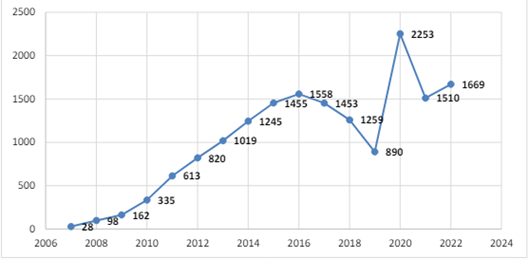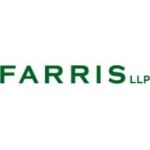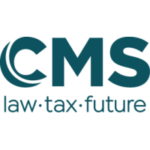-
Does your jurisdiction have a class action or collective redress mechanism? If so, please describe the mechanism and outline the principal sources of law and regulation and its overarching impact on the conduct of class actions in your jurisdiction.
The Israeli legal system allows collective actions in accordance with the mechanism established by the Israeli Class Action Law, 5766-2006 (the “Law“), which governs the filing and adjudication of class actions. According to the Law, in order to instigate a class action, the petitioner (aiming to represent the members of the class) must file a statement of claims based on a personal cause of action, alongside a motion to certify the personal claim as a class action (a “Certification Motion”). The Law stipulates several conditions for the approval of a Certification Motion.
The Certification Motion is adjudicated as a separate and preliminary trial. Following the filing of the respondent’s response to the Certification Motion, the court will hold evidentiary hearings and decide upon various petitions filed within the framework of the adjudication of the Certification Motion. Once this process is concluded, the court will decide whether the Certification Motion meets the conditions specified in the Law for certifying the statement of claim as a class action. The court will grant certification only if it is satisfied that (1) the claim raises substantial questions of fact or law that are common to all members of the group, and there is a reasonable possibility that these questions will be resolved in favor of the class; (2) a class action is the efficient and fair way of resolving the dispute under the specific circumstances of the matter; and (3) there is reasonable basis to assume that the interest of the class members will be represented and managed properly and in good faith. If the court grants certification, then the claim (as a class action) is adjudicated on its merits.
In addition to the Law, class action regulations were also promulgated, establishing the procedural rules applicable to certification motions and to the conduct of the class action proceedings.
A notable exception to the above-mentioned mechanism is the collective redress mechanism established by the Prevention of Environmental Nuisances (Civil Action) Law, 5752-1992, which allows a person who incurred damages or is expected to incur damages due to an environmental nuisance (as defined under said law), as well as eligible entities or non-profit organizations, to file a collective proceeding as set forth in article 10 of said law.
-
What is the history of the development of the class actions/collective redress mechanism and its policy basis in your jurisdiction?
Prior to the enactment of the Law, the applicable provision was under regulation 29 of the Israeli Civil Procedure Regulations, 5744-1984 (which are no longer in force), which, in principle, regulated the filing of a claim by a single plaintiff on behalf of multiple interested parties. However, various difficulties arose in applying the provisions of this rule for the purpose of filing and adjudicating class actions, primarily due to procedural requirements it set forth (for example, the requirement to personally notify all relevant plaintiffs of the filing of a claim under regulation 29), as well as the fact that the mechanism was established under subordinate legislation rather than primary legislation.
Ultimately, in 2006, the Law was enacted. The Law does not permit the filing of a class action on any subject without limitation; rather, it enumerates a closed list (within the second addendum of the Law) of cases and conditions under which a class action may be filed (for example, certain types of consumer claims; claims against insurers under specified conditions; claims against banking corporations; claims arising from securities-related matters; et cetera).
By imposing these limitations, the legislature sought to restrict the scope of filing class actions. Moreover, in recent years, there has been a noticeable trend toward further narrowing the ability to file and conduct class actions. This trend has been reflected, inter alia, in legislative amendments imposing a court fee requirement on petitioners seeking to file a class action (introduced in 2018).
-
What is the frequency of class actions brought in your jurisdiction, in terms of number of cases over the years and/or comparison to other types of litigation?
According to empirical research conducted and published in March 2023 by an inter-ministerial team established to examine the arrangements stipulated in the Law, since the enactment of the Law in 2006, there has been a surge in class actions filed in Israel. The research found that class action cases are among the most resource-intensive in the Israeli court system, in terms of the judicial time invested in them. In the past five years, an average of 1,500 class actions have been filed per year. The inter-ministerial team has published the following chart, which lays out the number of motions to certify class actions that were filed over the years:
-
Are there certain courts or types of claims that are most prevalent (for example competition vs commercial litigation generally)?
The study conducted by the inter-ministerial team did not include a breakdown of class actions filed according to the causes of action under which they were filed. There are certain findings on this subject from previous years; however, the study in which they were published was based on data from 2014 and earlier. Generally, based on our experience, it can be deducted that the most common type of class action is based on consumer-related claims. In addition, in recent years, there has been a noticeable trend of numerous class actions being filed concerning the accessibility of businesses or public sites for persons with disabilities, pursuant to Item 9 of the second addendum.
-
What is the definition of 'class action' or 'collective redress' relevant to your jurisdiction?
There is no formal definition of the term “class action” in the law. Generally, a class action is a proceeding filed pursuant to one of the items enumerated in the list set forth in the Law, which has been certified as a class action by a court decision following a Certification Motion.
-
What are the general 'triggers' for commencement of a class action or collective redress in your jurisdiction from a factual perspective?
As a general rule, a “trigger” for the filing of a class action in Israel may be any of a wide range of events, depending on the circumstances of the event and the type of claims it may give rise to on the part of the affected group members.
For example, a media report or public disclosure regarding an error or deviation from regulations by a retailer engaged in the sale of goods to the public (in the case of a consumer class action); a significant fluctuation in the value of a publicly traded company’s share following a major event in the company’s operations (in the case of a class action based on a securities-related cause of action); or the publication of an investigation being conducted by state enforcement authorities regarding a particular matter (for instance, in the context of a class action based on a securities-related cause, or against a banking corporation or insurer); and similar examples.
Often, class actions are filed without a specific “trigger” event preceding their submission. Frequently, the petitioners filing class actions are “repeat players” in this field, often represented by attorneys who are themselves repeat players. Accordingly, these petitioners and attorneys are experienced in “identifying” opportunities to file class actions under certain circumstances, even without a “trigger” event that brings a specific cause of action to the attention of the public.
-
How do class actions or collective redress proceedings typically interact with regulatory enforcement findings? e.g. competition or financial regulators?
Findings by regulatory authorities, such as the Competition Authority, the Israel Securities Authority, or the Capital Markets, Insurance and Savings Authority, often play a significant role in class action proceedings. While regulatory findings are not completely binding on civil courts, they often carry considerable evidentiary weight. petitioners in class actions frequently rely on final regulatory determinations – such as findings of unlawful restrictive arrangements, securities law violations, or consumer protection breaches – to substantiate their claims.
Courts, while not obligated to adopt the regulators’ conclusions regardless of circumstances, often view them as persuasive, particularly when the findings are final and based on thorough investigative processes. The respondent may be allowed to present contradictory evidence, but the evidentiary threshold to contradict such findings is generally high.
Thus, class actions are commonly filed following regulatory announcements or enforcement actions. However, it is not uncommon for petitioners, often “repeat players” in the class action field, to initiate proceedings independently of regulatory findings, identifying potential causes of action based on their own investigations.
Overall, regulatory findings serve as an important tool for class action petitioners in Israel, significantly influencing the likelihood of certification and the prospects for success on the merits.
-
What types of conduct and causes of action can be relied upon as the basis for a class action or collective redress mechanism?
As mentioned above, a class action cannot be filed in Israel unless it is based on one of the specific causes of action, listed in the second addendum to the Law. The second addendum includes the following types of actions:
- Consumer protection (e.g., unfair trade practices, defective products, misleading consumers).
- A claim against an insurer, insurance agent, or management company, in connection with a matter between such party and a client.
- A claim against a banking corporation, in connection with a matter between the corporation and a client; and a claim against a financial services provider or a payment service provider.
- A claim based on a cause of action relating to antitrust issue (specifically, a cause of action under the Economic Competition Law).
- A claim based on a cause of action arising from the ownership, possession, acquisition or sale of a security.
- A claim in connection with an environmental nuisance against the party responsible for such nuisance.
- A claim based on a cause of action under the Prohibition of Discrimination in Products, Services, and Entry into Places of Entertainment and Public Places Law.
- Claims arising under various statutes concerning the protection of employees’ rights.
- Claims arising under various statutes concerning the protection of rights of people with disabilities.
- A claim against a public authority for the restitution of amounts unlawfully collected as taxes, fees, or other mandatory payments.
- Claims against advertisers for the unlawful dissemination of spam (unsolicited commercial communications).
- Claims based on additional specific causes of action, which are generally less prevalent among class actions filed.
-
Are there any limitations of types of claims that may be brought on a collective basis?
Article 3(a) of the Law stipulates that a class action may only be filed if it is based on a cause of action specified in the second addendum to the Law (specified above) or on a provision of law that explicitly permits the submission of class actions on its basis.
-
Who may bring class action or collective redress proceeding? (e.g. qualified entities, consumers etc)
Article 4 of the Law defines who is entitled to file a Certification Motion, as follows: (1) an individual or corporation who possesses a valid personal cause of action that raises substantive questions of fact or law common to all members of the group; (2) a public authority (enumerated in the first addendum to the Law) with respect to a claim in the scope of one of its public goals; and (3) an organization (as defined by the Law) with respect to a claim in the scope of one of its public goals, provided that the court is convinced that, under the circumstances of the matter, there is difficulty in filing the Certification Motion by an individual possessing a personal cause of action (except for the Israeli Consumer Council, which is entitled to submit a Certification Motion, even if there is no difficulty in submitting such a motion by an individual).
-
Are there any limits on the nationality or domicile of claimants in class actions or collective redress proceedings?
The Law does not provide any explicit limitation as to the nationality or domicile of the petitioner. Thus, a foreign petitioner may initiate a class action and represent the class if he possesses a personal cause of action and the court deems him able to represent and manage the class’s interests properly, effectively, and in good faith.
-
Are there any limitations on size or type of class?
The Law does not provide any explicit limitation as to the size or type of class. Thus, a petitioner is not required to prove the exact size or scope of the class, as long as it is demonstrated that the cause of action raised is held by a relatively large group of affected individuals.
-
Are there any requirements or prohibitions in sourcing this class?
The Law does not specifically prohibit any action in sourcing the class. Furthermore, petitioners or their counsel (and often both) are often “repeat players” in the field of class action litigation, with extensive experience in identifying legal violations or malpractice that may give rise to a class action claim. Moreover, given the opt-out mechanism established under the Law, there is no real requirement for the petitioner to actively source members of the class; as long as the petitioner can demonstrate that a large group of affected individuals may indeed exist.
-
Which courts deal with class actions or collective redress proceedings?
The court designated to hear a specific class action is determined according to the general rules of subject matter and territorial jurisdiction. For example, the jurisdiction of the court in a class action seeking monetary relief will be determined by the total monetary compensation sought or estimated in the claim. Another example is a class action that is filed for a cause of action as to which the labour court holds exclusive subject matter jurisdiction. Such class action will be adjudicated by the relevant labour court.
-
Are there any jurisdictional obstacles to class actions or collective redress proceedings?
The Law does not impose any restrictions relating to territorial jurisdiction. Therefore, the general Israeli rules of jurisdiction and private international law apply. In this regard, when a Certification Motion is filed against a respondent residing outside of Israel, the court will examine whether the procedural rules regarding proper service have been met and if the forum non conveniens doctrine applies. Furthermore, the court will also consider the applicable law regarding the matter.
It should be noted that in recent years, a series of rulings have broadened the interpretation and application of the relevant considerations and procedural rules, alleviating some of the obstacles that petitioners face when filing a Certification Motion against a foreign respondent. Prominent rulings in this regard provide that foreign entities that operate or provide online services in Israel are subject to Israeli jurisdiction and can be liable for damages under Israeli law, even where their terms and conditions contain clauses that contain a choice of forum clause.
-
Does your jurisdiction adopt an “opt in” or “opt out” mechanism?
The default mechanism for class actions in Israel, in accordance with the Law, is an opt-out mechanism. However, the court has judicial discretion to order, under special circumstances, that an opt-in mechanism shall apply under special circumstances. In such a case, the class shall include only those who have notified the court, in writing, of their desire to join the action, and who would have been entitled to bring the claim in their own name based on the cause of action underlying the class action.
-
What is required (i.e. procedural formalities) in order to start a class action or collective redress claim?
In order to instigate a class action, the petitioner must meet several procedural formalities; inter alia, the petitioner must file an individual statement of claim, based on a personal cause of action, alongside the Certification Motion, supported by an affidavit. The petitioner must attach all supporting evidence and case law, and pay the required court fees upon filing. Furthermore, prior to filing, the petitioner is required to check if the class actions register includes a pending class action (or Certification Motion), which raises identical or similar essential questions of fact or law. If no such pending class action exists, upon filing, the petitioner is required to notify the Courts Administration of the filing, to have the claim registered.
-
What other mandatory procedural requirements apply to these types of matters?
While the Law does not require any prior notice to the respondents, lack of such prior notice may be a relevant consideration in the decision on whether to grant certification of the motion in specific circumstances, as ruled by case law. Also, prior notice is generally required (according to case law, but not under the Law) when filing a claim against a public authority for the restitution of amounts unlawfully collected.
-
Are normal civil procedure rules applied to these proceedings or a special set of rules adopted for this purpose?
The procedures governing motions for class action certification and the class actions themselves are subject to the core provisions of the regular Civil Procedure Regulations, while also being concurrently subject to the specific provisions of the Class Action Regulations, 2010.
-
How long do these cases typically run for?
The deliberation on a Certification Motion can vary significantly from case to case, depending on specific circumstances. As explained, the certification stage itself involves the submission of pleadings, the conduct of preliminary proceedings (particularly discovery), the submission of additional evidence if necessary, the adjudication of various motions, evidentiary hearings, the submission of closing arguments, and finally—a decision on the Certification Motion. As a result, the certification proceedings alone may extend over several years. Consequently, in most cases, the proceedings in class actions themselves span many years.
-
What remedies are available to claimants in class action or collective redress proceedings?
In general, the Law does not limit the type of remedies that can be sought in a class action, and the court has discretion to award any remedy it deems appropriate for the benefit of the class, including monetary compensation, injunctive relief, declaratory relief, and restitution.
One notable exception is the limitation on prescribing monetary relief in class actions filed against a public authority for restitution of payment unlawfully collected as a tax, toll, or other mandatory payment, which is limited to amounts collected in the 24 months prior to the filing of the Certification Motion.
-
Are punitive or exemplary damages available for class actions or collective redress proceedings?
Punitive or exemplary damages cannot be awarded in a class action. Statutory damages may not be awarded in a class action as well, except in class actions based on a cause of action pertaining to the protection of rights of people with disabilities.
-
Is a judge or multiple judges assigned to these cases?
The answer depends on the court in which the class action is being heard, in accordance with the rules of subject-matter jurisdiction. In civil courts, motions for class action certification are heard by a single judge. In labor courts, such motions are typically heard by a judicial panel composed of three members—namely, a judge, a representative of a workers’ organization, and a representative of an employers’ organization.
-
Are class actions or collective redress proceedings subject to juries? If so, what is the role of juries?
The Israeli legal system does not involve juries. Proceedings in Israel are conducted before professional judges.
-
What is the measure of damages for class actions or collective redress proceedings?
The Law provides guidelines for the court as to quantifying damages and the distribution of remedies for damages among the class. The preferred method that coincides with the purpose of a class action is to reward the class members for actual damage resulting from the respondent’s wrongdoing. Nonetheless, when there is an inherent difficulty in quantifying the specific damages, the court has the authority to order that estimated damages be applied.
As to distribution, the court may order monetary compensation, or any another suitable remedy, to be paid directly to each class member who has proven eligibility, in the amount and manner decided by the court. Alternatively, the court may order each class member to prove their eligibility for monetary or any other compensation. The court may otherwise order the respondents to pay a lump sum, from which each class member will be compensated on a pro-rata basis. If a remaining sum is left due to a class member relinquishing compensation, failing to prove eligibility, or if he cannot be located or contacted, the remaining sum will be allocated among the other class members proportionally, provided that no class member is overcompensated, following which the court may order any sum left to be reverted to the national trust for class actions, or to be used for other purposes, such as donations to certain public organizations that promote a cause consistent with the underlying purpose of the class action.
In cases where it is impossible to identify and locate the specific individuals that incurred damages, the court may order any other remedy in favour of the group, in whole or in part, or in favour of the public, as it deems appropriate under the circumstances.
-
Is there any mechanism for the collective settlement of class actions or collective redress proceedings?
Article 18 of the Law outlines a detailed mechanism for settlement agreements in class actions. the Law mandates that settlement agreements be brought to the court’s approval.
A motion to approve a settlement agreement is filed with the court, alongside affidavits on behalf of the parties and their counsels that include all material details related to the settlement. If the court does not dismiss the settlement in limine, it will order that a notice concerning the motion be made to the public. Further to the publication, class members, a relevant public authority or organization, and the Attorney General may file an objection to the proposed settlement, following which the parties will be given the right to respond to the objection. Furthermore, class members who do not want the settlement to apply to them may request the court’s permission to opt out.
After such process is completed, the court will review the settlement agreement and any objections (if applicable), examine the relevant considerations, and decide whether to approve the proposed settlement.
-
Is there any judicial oversight for settlements of class actions or collective redress mechanisms?
As mentioned, a settlement in a class action, both at the stage of the Certification Motion as well as after the action is certified, is subject to judicial oversight and requires the court’s approval.
Article 19 of the Law provides the considerations the court must take into account, establishing that the court may approve a settlement only if it is satisfied that it is proper, fair, and reasonable in consideration of the interest of the class members, and that the settlement agreement is the most efficient and fair manner of resolving the dispute under the circumstances of the matter.
The Law further mandates that prior to the approval of a settlement agreement, the court receive an expert opinion on the appropriateness of the settlement, unless the court deems the expert opinion not to be required due to special circumstances, which are required to be detailed in the court’s decision.
As part of the judicial oversight, the court may condition the settlement’s approval on conditions aimed at protecting the interests of the class members, to ensure adherence to the law, to mitigate the impact of the representative plaintiff problem, or to supervise proper implementation of the settlement. The court may also order the parties to submit a report upon the execution of the settlement (after its approval), or that other means of supervision be taken.
Another aspect of the judicial oversight is the court’s role and discretion in determining the incentive award to be paid to the petitioner and the attorney’s fees to be paid to the petitioner’s counsel subsequent to the approval of a settlement. This is aimed to ensure that the benefit to the petitioner and his counsel be proportionate to the actual benefit the settlement provided to the class, and to create proper incentives in regard to class actions.
-
What are the top three emerging business risks that are the focus of class action or collective redress litigation?
According to the empirical research conducted and published in March 2023 by the inter-ministerial team, the vast majority of class actions in Israel are filed for causes of action under two main categories, and thus pose the top two categories of emerging business risks:
Consumer protection: The main business risks in this category relate to false and misleading advertising and false marking of goods. These issues are relevant to a large number of consumers (potential class members) and thus pose a substantial monetary risk for companies.
Rights of persons with disabilities: This category poses an emerging business risk due to growing awareness and governance as to the rights of persons with disabilities, and an increasing trend in the filing of class claims based on such causes of action. Furthermore, the rules and procedures pertaining to such causes of action are designed to incentivize and encourage the filing of class actions; e.g., no court fee payment, the option to award statutory damages, etc.).
A third category of emerging business risk involves securities and corporate governance class actions. Though the quantity of class actions filed for causes of action under this category is not as substantial as the other two categories, the ongoing development of the relevant rules and regulations relating to this category creates high exposure for companies, with the main emerging business risks being, inter alia, allegations relating to misleading statement in a prospectus, insider trading, and breach of fiduciary duty. Furthermore, class actions in these matters tend to be legally complex, often entail expert opinions, and involve a prolonged, costly process.
-
What trends in litigation are evident in the last three years in your jurisdiction in respect of class actions?
A noticeable trend that can be pointed out in the filing of class actions, pertains particularly to accessibility claims (based on causes of action regarding to rights of people with disabilities), as well as to privacy protection (claims of violations of various obligations by businesses, in their relationships with customers, concerning customers’ personal information).
-
Where do you foresee the most significant legal development in the next 12 months in respect of collective redress and class actions?
While it is difficult to try and predict future legal developments, we believe one significant development will likely emerge in the digital privacy and data protection sphere (as it is already evident from the trend we mentioned above).
With the continuing implementation of comprehensive privacy regulations following models like GDPR (particularly after the recognition of Israel as a provider of an adequate level of data protection by the European Commission in early 2024) and rising awareness of privacy rights, a growing momentum for the filing of class actions addressing unauthorized data collection and breaches of privacy obligations may be created. This is particularly expected in light of a forthcoming legislative amendment (as part of the forthcoming legislative reform, detailed below) that may introduce a specific cause of action under the Law, allowing class actions to be filed for the unlawful transfer of personal data in violation of the Privacy Protection Law.
We also anticipate a significant change in the Israeli class action landscape, potentially leading to a reduction in the number of class actions filed against small businesses. This expected change stems from the forthcoming legislative reform, as detailed below.
-
Are class actions or collective redress proceedings being brought for ‘ESG’ matters? If so, how are those claims being framed?
Israel has a comprehensive set of laws and regulations relating to ESG matters, which are increasingly being enforced through class actions. In fact, many aspects of the Law are intended to promote the enforcement of ESG matters.
For example, the Second Addendum to the Law allows class actions to be filed against companies for various infringements of environmental statutes. Prior to the Law’s enactment, the only remedy available to petitioners in a class action filed on the grounds of environmental violations was an injunctive relief. The Law’s enactment provided petitioners with the possibility of petitioning for monetary relief, thus creating an economic incentive to file class actions based on environmental matters.
The Law’s enactment also significantly advanced the enforcement of employee rights by enabling class actions to be filed for causes of action under various employment statutes, regarding minimum wage; the employment of agency workers; and other relevant causes of action.
Another example is the significant increase in the number of class actions filed for a cause of action pertaining to the rights of persons with disabilities, which can be attributed to the exemption from the requirement to pay court fees.
A notable class action precedent in relation to companies’ ESG practices is the class action filed by the Ministry of Environmental Protection against two major corporations, Hogla-Kimberly Ltd and Sano-Bruno’s Enterprises Ltd, for “greenwashing” practices. The Tel Aviv District Court ruled that the companies misled the public by falsely labelling bags as “environmentally friendly” and claiming that the bags were manufactured from biodegradable and ecological material.
Finally, it should be noted that that in recent years, Israeli regulators have begun focusing their attention more on ESG matters. For example, the Ministry of Strategic Affairs established a program that aims to incentivize companies, by distribution of grants, to draft and publish ESG reports; and the Israel Securities Authority published a statement calling on all reporting corporations whose securities are traded to publish a yearly corporate governance report. Therefore, it can be reasonably assumed that the number of class actions concerning ESG matters will increase in the coming years.
-
Are there any proposals for the reform of class actions or collective redress proceedings? If so, what are those proposals?
Currently, a proposal to amend the Class Actions Law is before the Israeli legislature. As of May 2025, the bill is pending final approval by the Knesset.
The proposed bill contains comprehensive amendments to the Law on various matters, including several amendments that aim to tackle the large number of unsubstantiated and frivolous motions to certify that are filed with the court. These include:
- Obliging petitioners to notify prospective respondents prior to filing a Certification Motion, as a precondition to such filing, in specific circumstances; inter alia, in a claim filed against a “small business” for causes of action enumerated in the Law; in any claim against a “micro business”; or in a claim against a public authority seeking restitution of unlawfully collected amounts.
- Granting the court the authority to impose costs, at a reasonable and fair amount, on petitioners or their counsel if the court deems the motion to certify or a class action to be conducted in bad faith.
- Granting the court the authority to order that a motion to certify be dismissed at any time, if it deems the motion to be a vexatious claim, or on the grounds of de minimis
- Revoking the court’s authority to grant an incentive award to the petitioner and attorney fees to his counsel when approving a withdrawal from a Certification Motion or from a class action.
- Limiting the number of motions to certify that a petitioner can file to five claims per year, In an effort to restrict petitioners who are repeat players in class action litigation.
Another notable amendment includes, as aforesaid, the addition of several causes of action relating to the Privacy Protection Law to the Second Addendum to the Law, allowing such causes of action to serve as a basis for a motion to certify a class action.
Israel: Class Actions
This country-specific Q&A provides an overview of Class Actions laws and regulations applicable in Israel.
-
Does your jurisdiction have a class action or collective redress mechanism? If so, please describe the mechanism and outline the principal sources of law and regulation and its overarching impact on the conduct of class actions in your jurisdiction.
-
What is the history of the development of the class actions/collective redress mechanism and its policy basis in your jurisdiction?
-
What is the frequency of class actions brought in your jurisdiction, in terms of number of cases over the years and/or comparison to other types of litigation?
-
Are there certain courts or types of claims that are most prevalent (for example competition vs commercial litigation generally)?
-
What is the definition of 'class action' or 'collective redress' relevant to your jurisdiction?
-
What are the general 'triggers' for commencement of a class action or collective redress in your jurisdiction from a factual perspective?
-
How do class actions or collective redress proceedings typically interact with regulatory enforcement findings? e.g. competition or financial regulators?
-
What types of conduct and causes of action can be relied upon as the basis for a class action or collective redress mechanism?
-
Are there any limitations of types of claims that may be brought on a collective basis?
-
Who may bring class action or collective redress proceeding? (e.g. qualified entities, consumers etc)
-
Are there any limits on the nationality or domicile of claimants in class actions or collective redress proceedings?
-
Are there any limitations on size or type of class?
-
Are there any requirements or prohibitions in sourcing this class?
-
Which courts deal with class actions or collective redress proceedings?
-
Are there any jurisdictional obstacles to class actions or collective redress proceedings?
-
Does your jurisdiction adopt an “opt in” or “opt out” mechanism?
-
What is required (i.e. procedural formalities) in order to start a class action or collective redress claim?
-
What other mandatory procedural requirements apply to these types of matters?
-
Are normal civil procedure rules applied to these proceedings or a special set of rules adopted for this purpose?
-
How long do these cases typically run for?
-
What remedies are available to claimants in class action or collective redress proceedings?
-
Are punitive or exemplary damages available for class actions or collective redress proceedings?
-
Is a judge or multiple judges assigned to these cases?
-
Are class actions or collective redress proceedings subject to juries? If so, what is the role of juries?
-
What is the measure of damages for class actions or collective redress proceedings?
-
Is there any mechanism for the collective settlement of class actions or collective redress proceedings?
-
Is there any judicial oversight for settlements of class actions or collective redress mechanisms?
-
What are the top three emerging business risks that are the focus of class action or collective redress litigation?
-
What trends in litigation are evident in the last three years in your jurisdiction in respect of class actions?
-
Where do you foresee the most significant legal development in the next 12 months in respect of collective redress and class actions?
-
Are class actions or collective redress proceedings being brought for ‘ESG’ matters? If so, how are those claims being framed?
-
Are there any proposals for the reform of class actions or collective redress proceedings? If so, what are those proposals?






















